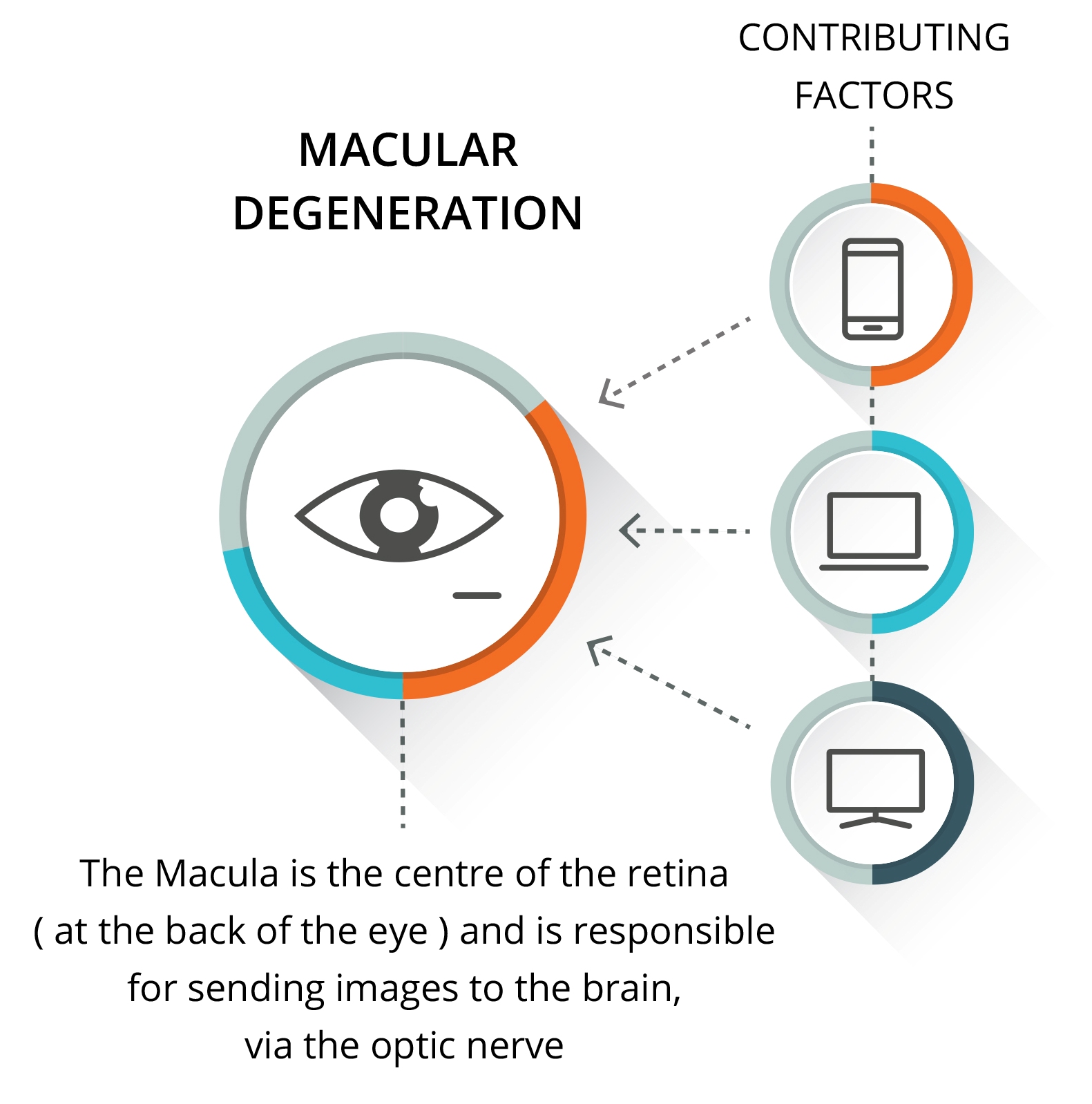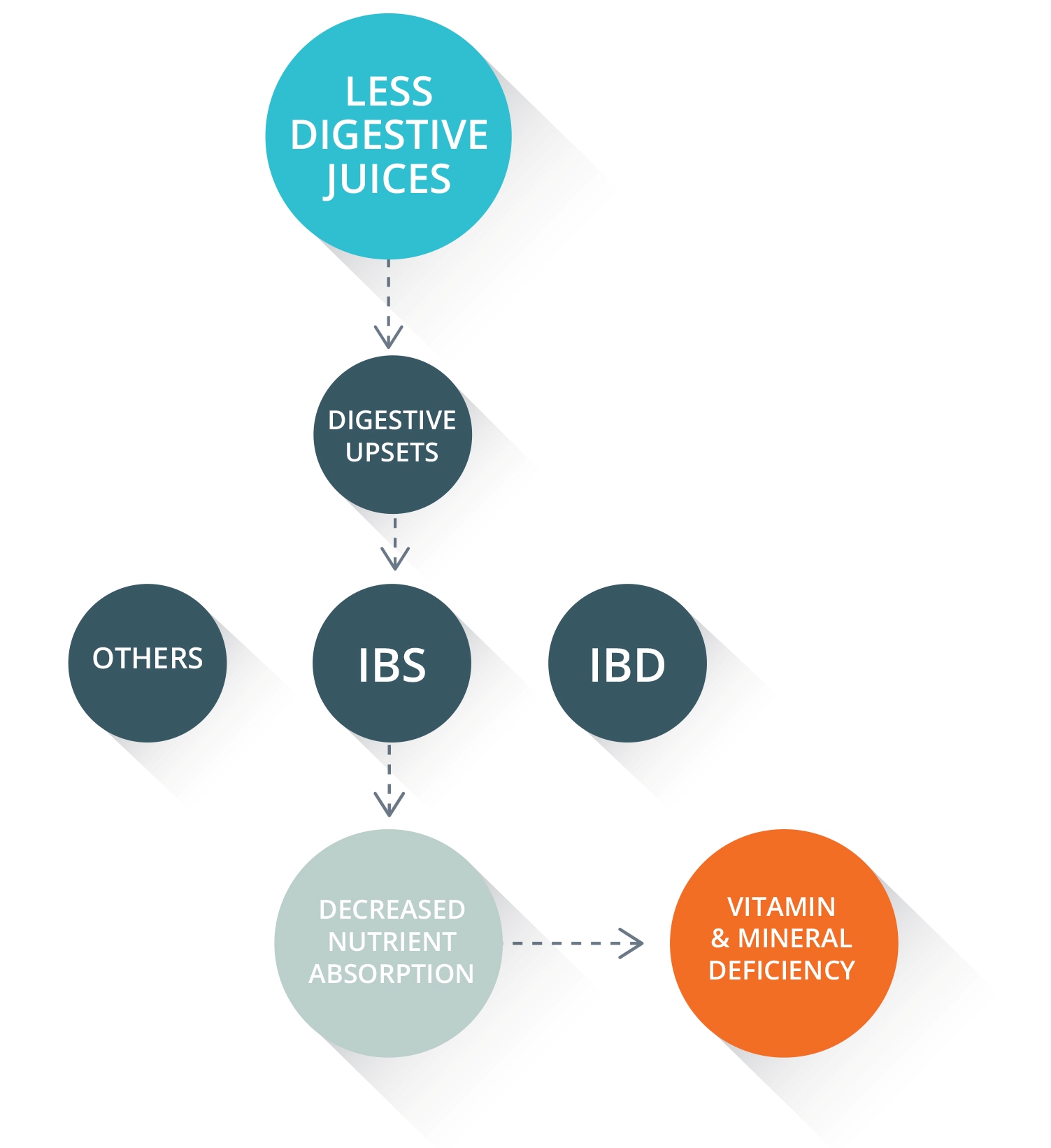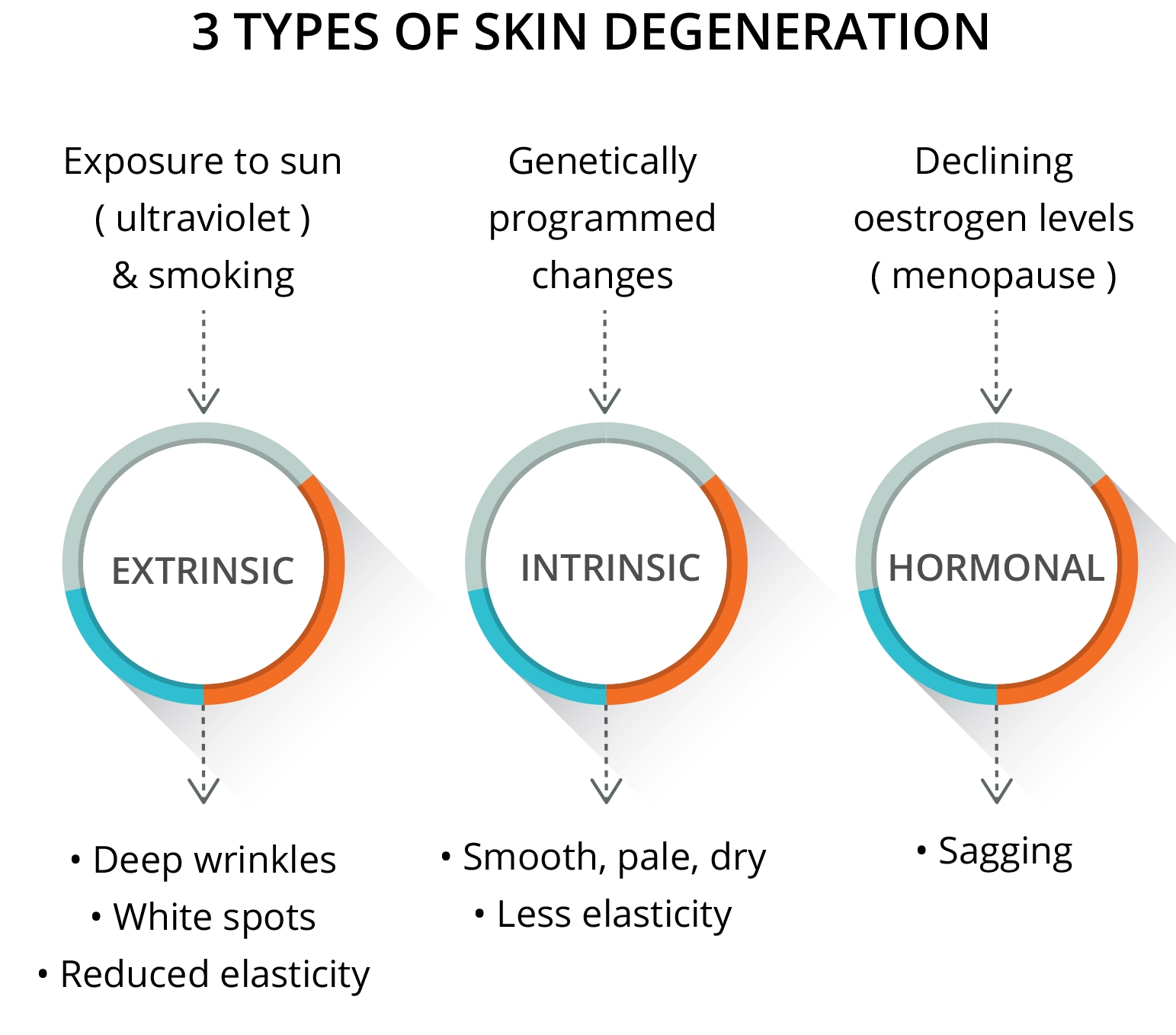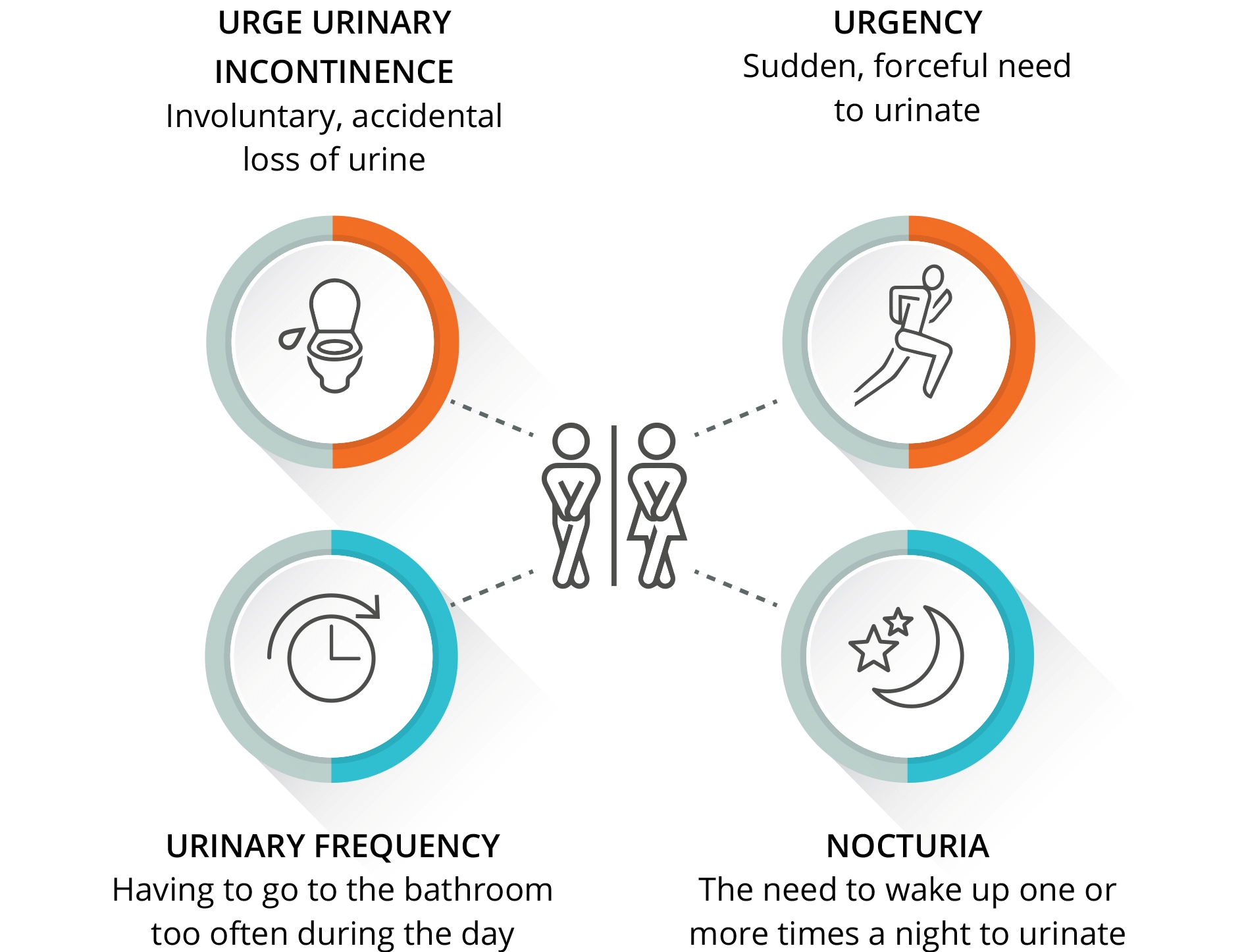VISUAL DEGENERATION
Decreased visual acuity, especially in dim light, and blurry vision as the lens in our eyes begins to harden. The more time we spend on mobile phones and watching computer screens or TV, the faster the degeneration. Macular degeneration is the leading cause of vision loss in our late 50s and 60s. It’s characterised by blurring in the centre of our vision. Get regular eye tests and invest in a few good pair of readers - if you haven’t already!

DIGESTIVE ISSUES
As we age, we produce less digestive juices. The lack of digestive juices causes digestive upsets due to undigested foods in the intestines. Conditions such as Irritable Bowel Syndrome (IBS) and Irritable Bowel Disorder (IBD), among others, can develop as a result. The lack of stomach acids and resulting digestive issues that follow means we no longer effectively absorb the vitamins and minerals in our food. Over time, this will lead to a deficiency in some of the essential vitamins.

SKIN DEGENERATION
Our skin’s renewal process and capabilities decrease significantly, and is evident through intrinsic, extrinsic and hormonal ageing. Intrinsic ageing is a slow process that begins to show through smooth, pale, dry and less elastic skin – features such as fine wrinkles become more noticeable on the face. Extrinsic ageing amounts to deeper, coarser wrinkles, white spots and reduced elasticity. This is due to chronic exposure to solar ultraviolet irradiation (photo aging) and smoking. Hormonal ageing is due to a decline in oestrogen that results in sagging skin post-menopause.

HEARING LOSS
Damage to the eardrum and ear canal over time causes minor to significant hearing loss, depending on the level of our exposure to excessive noises. We struggle to hear higher frequencies and rapid or mumbled speech.

OVER-ACTIVE BLADDER
Bladder incontinence, or not being able to ‘hold it’ becomes a problem. It’s the sudden urge to urinate that is hard to control or keep in - it’s that terrifying moment when you laugh or sneeze and feel like you had a mini ‘go’. Women tend to suffer from this far more than men.

HEART HEALTH
The risk of heart attacks increases greatly. Heart attacks are often a consequence of lifelong lifestyle habits. High cholesterol and blood pressure, a lack of exercise and too much stress are some of the most common causes of a heart attack. Men are significantly more likely to suffer heart attacks at this age.

Comments